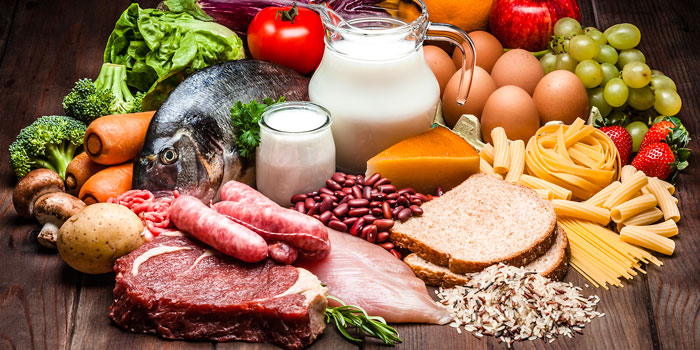Every diet, every nutritionist, every trainer insists that if we want to have a healthy and beautiful body, we should consume protein. Many stores and brands use the word protein as a marketing tool to increase sales of their food. Some nutritionists create their nutrition programs based on protein and claim that by consuming a lot of protein you will lose weight and not feel hungry. Such a tempting offer captures many who want to lose weight quickly and without hunger. We recommend that you correctly approach the issue of protein intake and do not exclude other foods from your diet. Protein is necessary for our body to function properly, but you must understand that this is only one of the necessary components. All products must be in sufficient quantities. A lack or excess of one of the products leads to the disruption of all the systems of your body.

The main role of the protein is to help the growth of muscles and tissues in general. Proteins are divided into 2 categories:
Protein from animal products includes meat, poultry, fish, milk, cottage cheese, and eggs.
Protein from plants. It is rye, oatmeal, walnuts, lentils, beans, soy, and seaweed.
A protein has certain functions and no other component can replace them.
• Proteins are the main building block of all cells.
• All biochemical reactions in your body are not possible without protein.
• Muscle performance depends on protein.
• The protein contains antibodies that protect your immune system and fight inflammation in the body.
• Proteins play an important role in intercellular communication and signal transduction.
According to studies, scientists recommend consuming such a ratio of proteins per day – 0.8 g per 1 kg of your weight or 0.35 g per pound of body weight per day for the average person. When calculating your daily protein utilization, you should consider your lifestyle. If you lead an active lifestyle, exercise regularly, then you need more protein than a person of your height, weight, and age, but who has a sedentary lifestyle.
Some studies suggest that with age, the human body needs more protein for muscles and skin to relax in tone and function well.
You must understand that protein should not make up your entire diet. 25-35% of the total amount of food consumed is enough for an adult.
If you don’t know how to quickly get a sufficient amount of protein, we offer several products that are record-breakers for protein content:
tuna – 33 g, mozzarella (nonfat) – 32 g protein per 100 g of product, beef (nonfat) – 31 g, chicken breast – 30 g, shrimp – 22 g, almonds – 21 g protein per 100 g.
Comments are closed, but trackbacks and pingbacks are open.